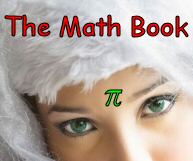Wednesday, November 08, 2006
Women in physics

Oftentimes one cannot help but wonder at the heavily biased gender ratio at the level of original research in Natural Sciences. The issue is very relevant to Physics in particular. Hence it is a valid question to ask why there are so fewer women physicists around as compared to their XY counterparts. The answer, in the lack of scientific evidence of cognitive differences, convincingly lies buried in the history of deep-rooted socio-econo-religious structures that have been prevalent in civilizations across the world, and inevitably perpetrated into our academic institutions.
Physicist Sean Carroll, in a column in his blog, calls this Unconscious but Pervasive bias, and refers to a recent New York Times article discussing a report from the National Academy of Sciences titled Beyond Bias and Barriers: Fulfilling the Potential of Women in Academic Science and Engineering, which raises voice against outmoded institutional structures in academia. [material excised for brevity]
Recently, an effort has been made by Nina Byers and colleagues at the University of California, Los Angeles UCLA, to compile a list of 83 women physicists, who made significant contributions in the field in the 20th Century (pre-1976). The website also has a list of names of 300 contemporary women physicists who have been leading research in their respective fields. The list doesn't claim to be (and is by no means) exhaustive, but it is nevertheless a commendable attempt to create a database of contemporary women physicists with significant contributions in their respective areas of research.
External Links: NYT article; National Academy of Sciences Report; Contributions of 20th Century Women in Physics; APS Women in Physics Group; APS statistics; IOP Women in Physics Group; Women Nobel Laureates in Physics; Turning Women into Leaders; Physics needs Women.
This article is licensed under the GNU Free Documentation License. It uses material from the Wikipedia article "Women in physics". This article is an excerpt from a larger entry. Link may die if entry is finally removed or merged.
Young girls are discouraged at a young age away from science, not by men, but by women who feel that being a scientist is not in the girl's 'best interest.'
<< Home
 The Wikipedia Knowledge Dump (WikiDumper.org)
The Wikipedia Knowledge Dump (WikiDumper.org)


